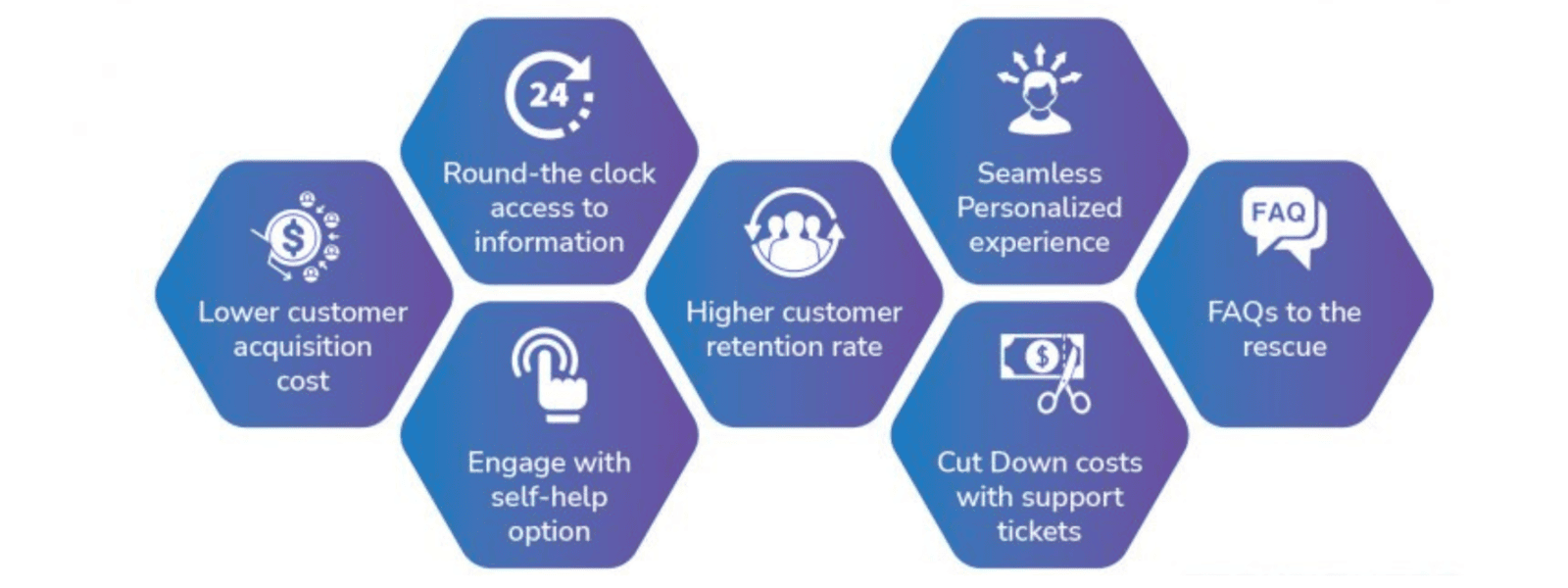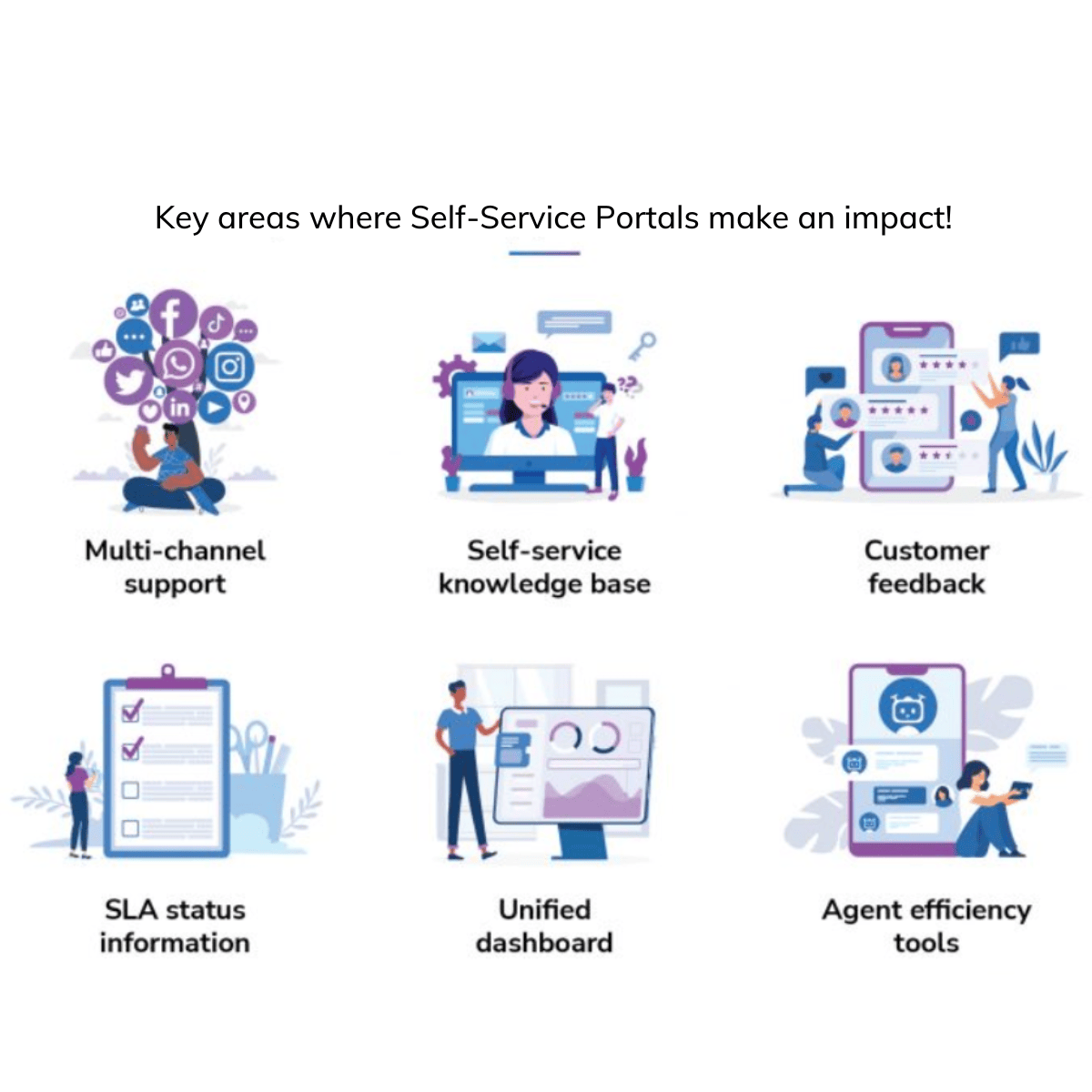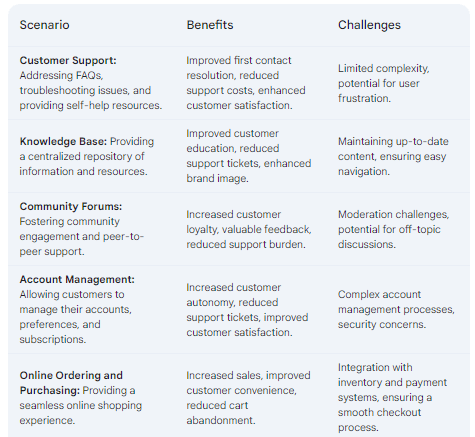Imagine a world where your business runs like a well-oiled machine, even during peak hours. Customers seamlessly access information, resolve issues, and complete transactions independently, freeing you and your team to focus on high-impact tasks. This isn't a fantasy; it's the reality empowered by self-service web portals.
At Erphub, we understand the challenges business owners face in today's dynamic landscape. As your trusted Zoho partner, we're here to unlock the transformative power of self-service web portals for your business. This article reflects at how these portals become your secret weapon for scaling and achieving sustainable growth.

1. Empower Your Customers:
- 24/7 Availability: Self-service portals operate around the clock, eliminating the limitations of business hours. Customers can access information, submit requests, and download resources anytime, anywhere.
- Reduced Support Burden: Empower customers to find answers and resolve simple issues on their own. This frees your support team to dedicate their time to more complex inquiries and personalized interactions.
- Increased Customer Satisfaction: Self-service fosters a sense of control and empowers customers to manage their needs efficiently. This translates to higher satisfaction and loyalty towards your brand.
2. Streamline Operations and Boost Efficiency:
- Automated Workflows: Automate repetitive tasks like password resets, account updates, and invoice downloads. This frees up valuable resources for your team and keeps operations running smoothly.
- Reduced Support Costs: By deflecting routine inquiries, self-service portals significantly reduce the strain on your customer support team. This translates to lower operational costs and improved resource allocation.
- Improved Data Accuracy: Empowering customers to manage their own data improves data accuracy and eliminates the risk of errors caused by manual interaction.
3. Gain Valuable Customer Insights:
- Tracking User Behavior: Self-service portals provide valuable data on customer behavior and usage patterns. Analyze which resources are most accessed and what areas require improvement.
- Improved Customer Engagement: Portals create a platform for two-way communication. Gather feedback and suggestions to refine your offerings and personalize the customer experience.
- Data-Driven Decision Making: Leverage insights from portal usage to make informed decisions about product development, marketing strategies, and resource allocation.
4. Scale Your Business Effortlessly:
- Onboarding New Customers: Self-service portals can automate the onboarding process, making it easy for new customers to get started with your products or services.
- Reduced Operational Barriers: By offloading simple tasks and FAQs, portals enable you to support a larger customer base without significant staff increases.
- Flexibility for the Future: Self-service portals are dynamic and scalable. Easily adapt them to your evolving needs and integrate them with your existing workflows.

Self-service web portals have become an indispensable tool for businesses seeking to enhance customer experience, streamline operations, and drive growth. By empowering customers to self-serve, these portals offer numerous benefits, including improved customer satisfaction, reduced support costs, and increased efficiency.
The Pros and Cons of Self-Service Web Portals
Pros:
- Improved Customer Satisfaction: Customers can access information and resolve issues 24/7, leading to higher satisfaction levels.
- Reduced Support Costs: By deflecting routine inquiries, self-service portals can significantly reduce the burden on customer support teams.
- Increased Efficiency: Automated workflows and self-service options streamline operations and improve productivity.
- Enhanced Data Collection: Self-service portals can capture valuable customer data and insights.
- Improved Branding: A well-designed portal can enhance your brand image and reputation.
Cons:
- Initial Investment: Implementing a self-service portal requires upfront costs for development and maintenance.
- Limited Complexity: Self-service portals may struggle to handle complex inquiries or resolve intricate issues.
- User Adoption: Encouraging customers to use the portal may require marketing and training efforts.

Data-Driven Insights from Self-Service Portals
By analyzing data from self-service portals, businesses can gain valuable insights into customer behavior, preferences, and pain points. This data can be used to:
- Optimize Portal Design: Identify areas where users may be struggling and make necessary improvements.
- Improve Content: Create more relevant and helpful content based on customer needs.
- Personalize Experiences: Tailor content and recommendations based on individual user preferences.
- Measure ROI: Quantify the benefits of the self-service portal, such as reduced support costs and increased customer satisfaction.
Best Practices for Implementing Self-Service Web Portals
- Define Clear Goals: Clearly articulate the objectives of your self-service portal and the specific problems it aims to solve.
- User-Centric Design: Create a portal that is intuitive, easy to navigate, and visually appealing.
- Comprehensive Knowledge Base: Provide a comprehensive knowledge base with clear and concise articles.
- Search Functionality: Implement a robust search function to help users find the information they need quickly.
- Feedback Mechanisms: Encourage customer feedback to continuously improve the portal.
- Integration with Other Systems: Integrate the portal with your CRM, marketing automation, and other systems for a seamless experience.
- Measure and Analyze: Track key performance indicators (KPIs) to assess the effectiveness of your portal.
Beyond the Basics: Zoho Solutions for Your Self-Service Portal
Erphub offers expertise in crafting self-service portals using Zoho's powerful suite of applications. Here's how Zoho empowers your portal journey:
- Zoho Creator: Build a user-friendly and customized interface for your portal.
- Zoho Knowledge Base: Create a comprehensive knowledge base filled with articles, FAQs, and tutorials.
- Zoho Desk: Integrate a ticketing system for efficient communication and problem resolution.

